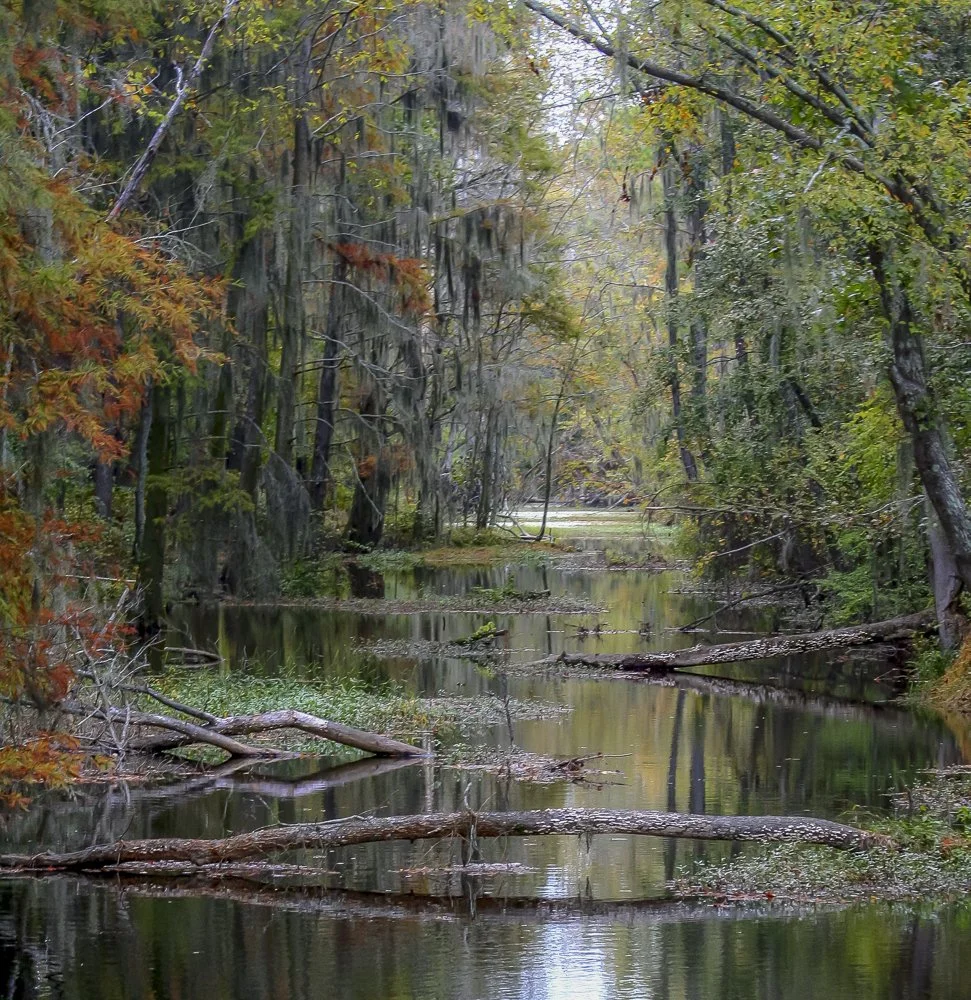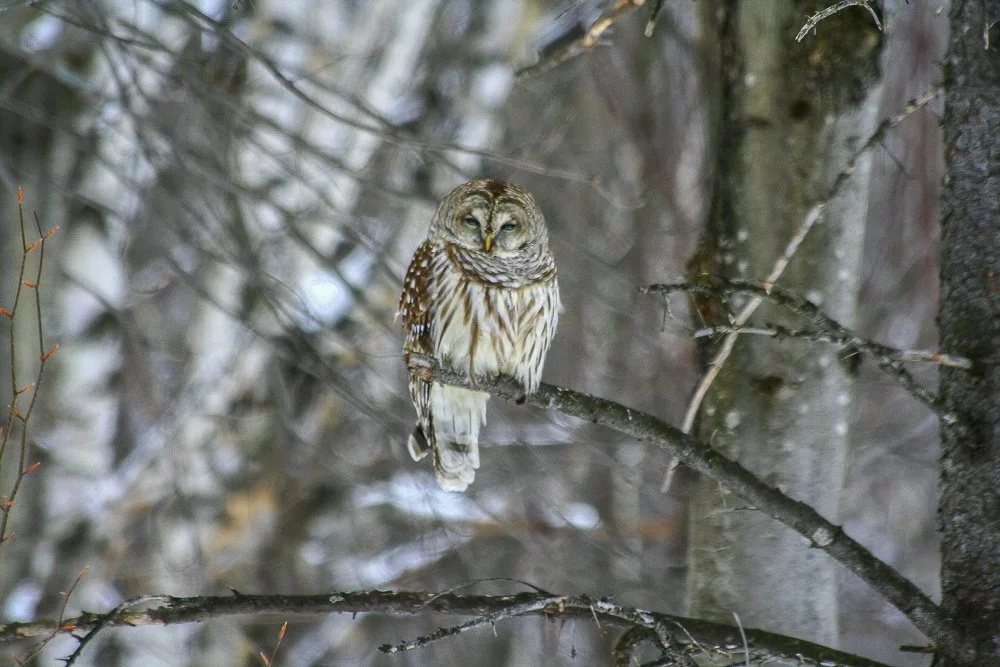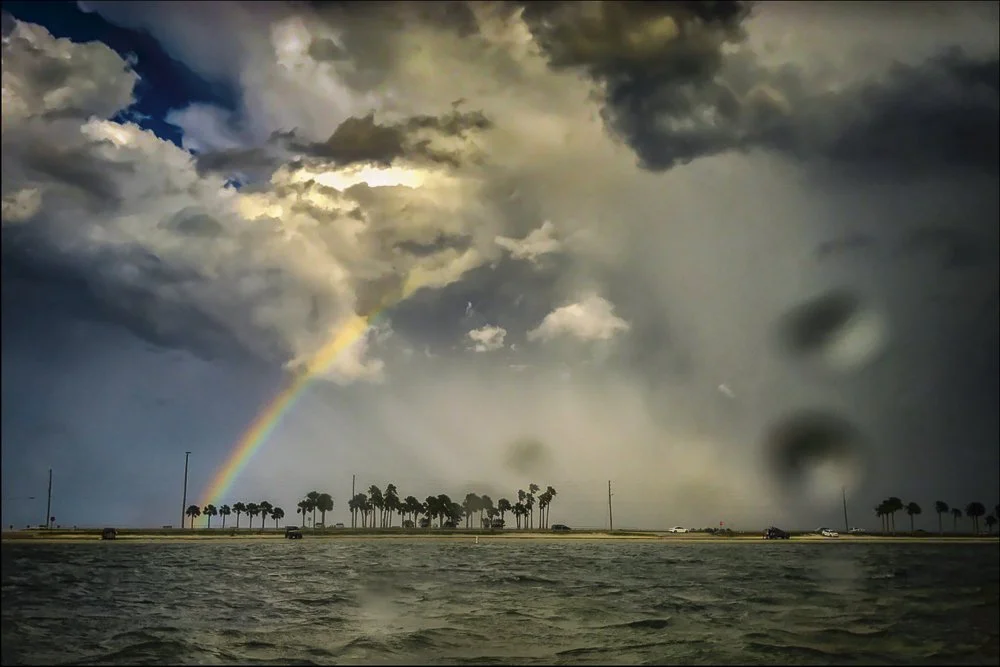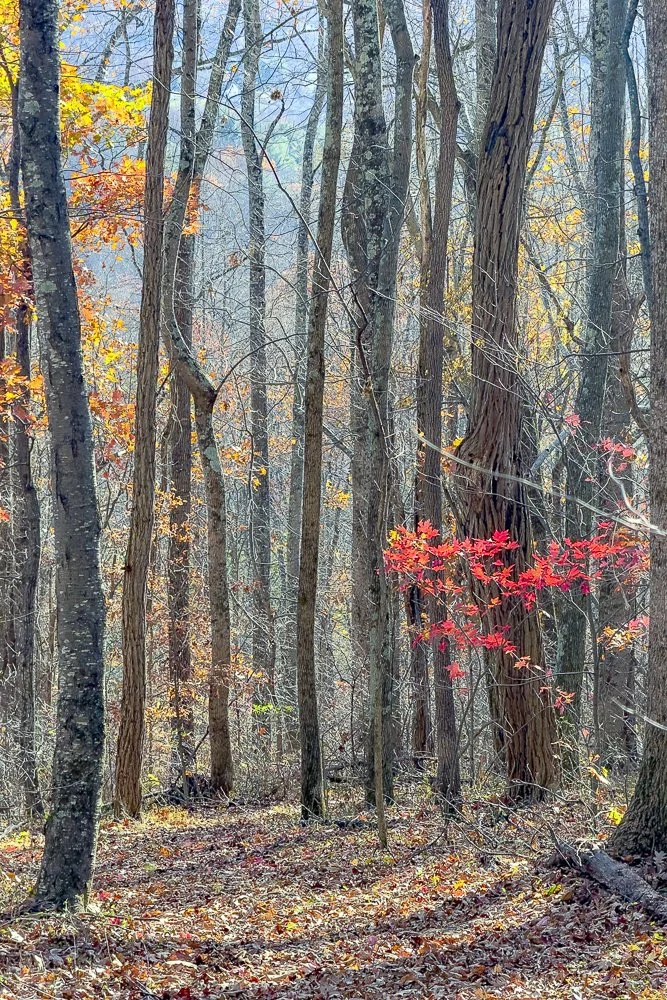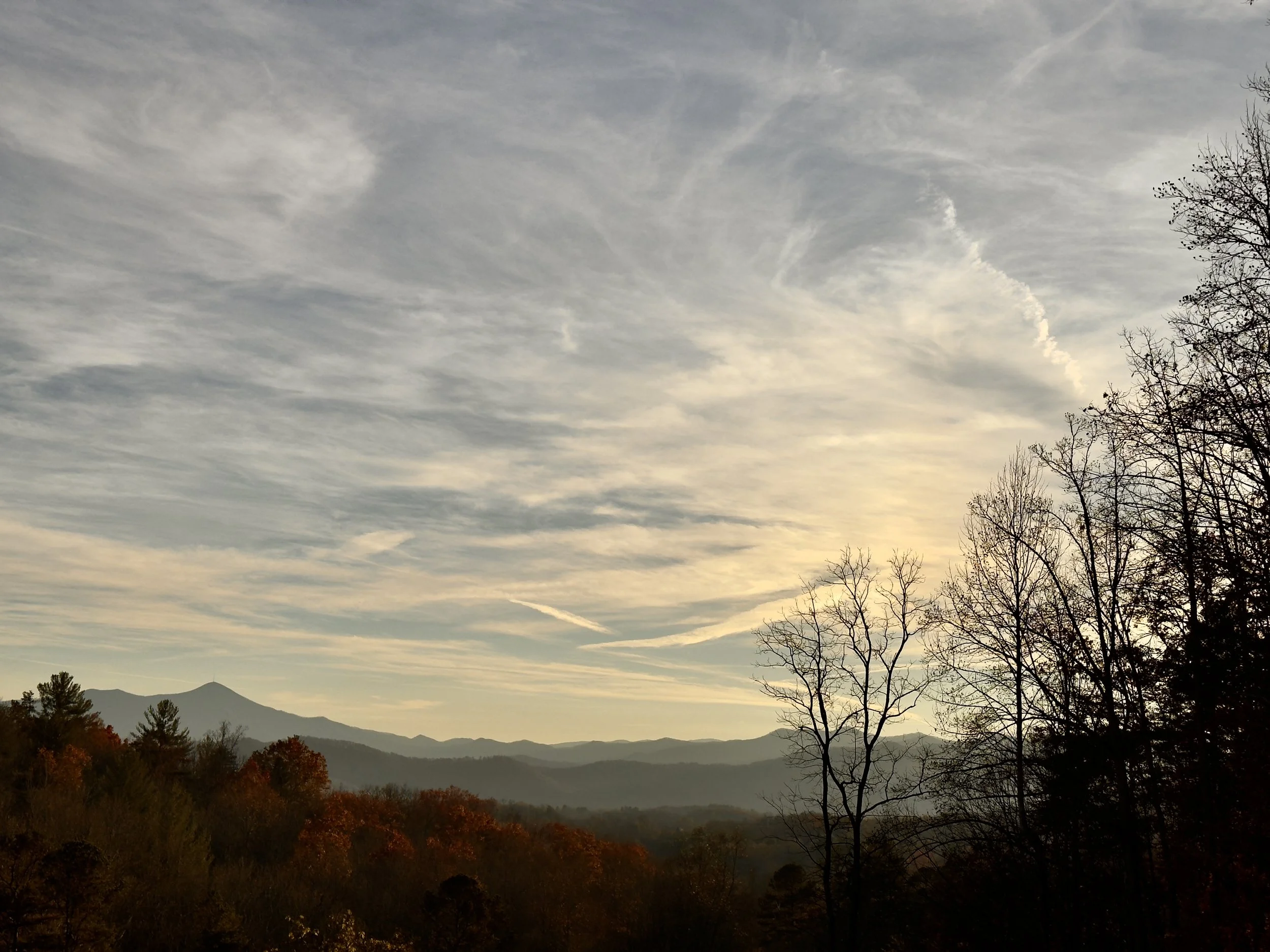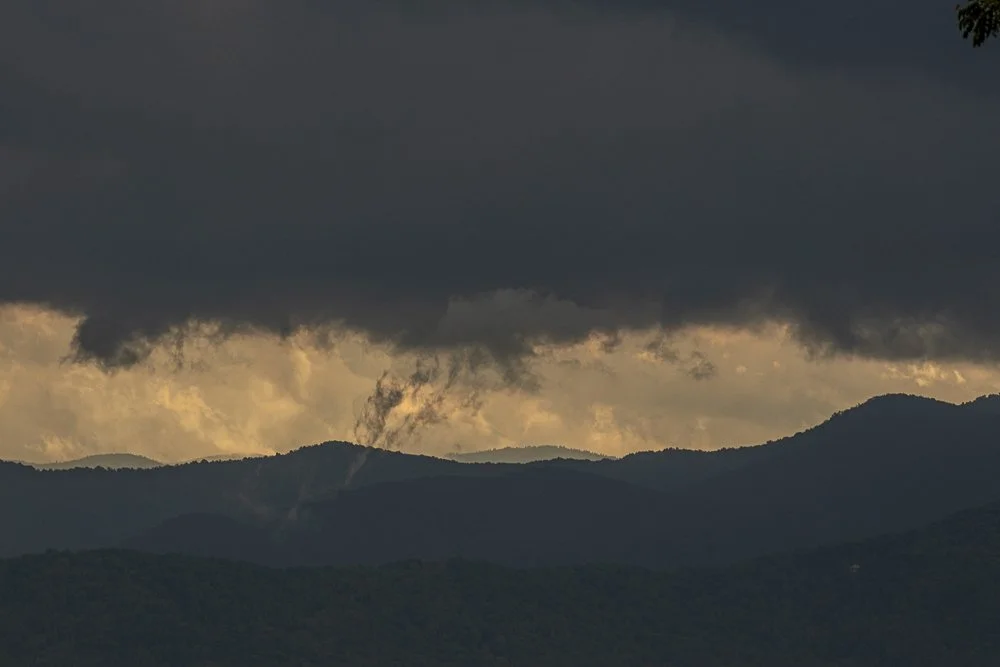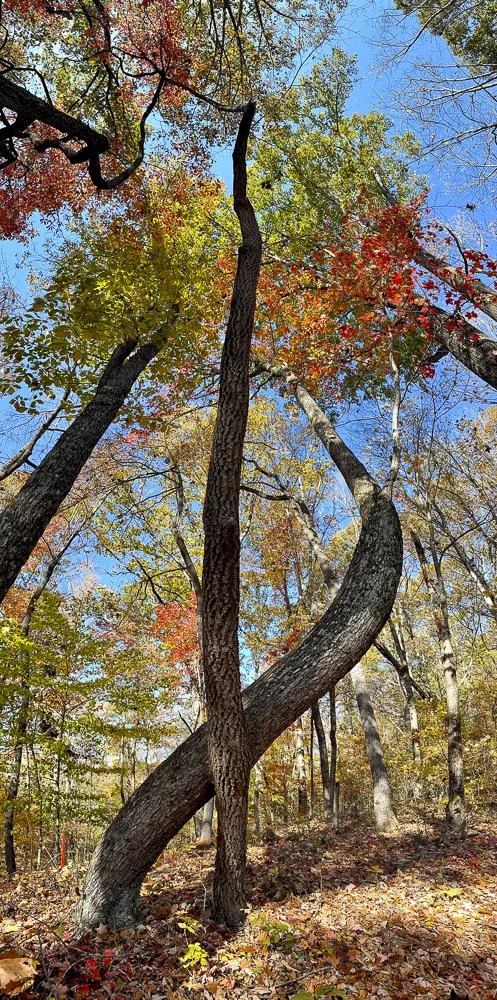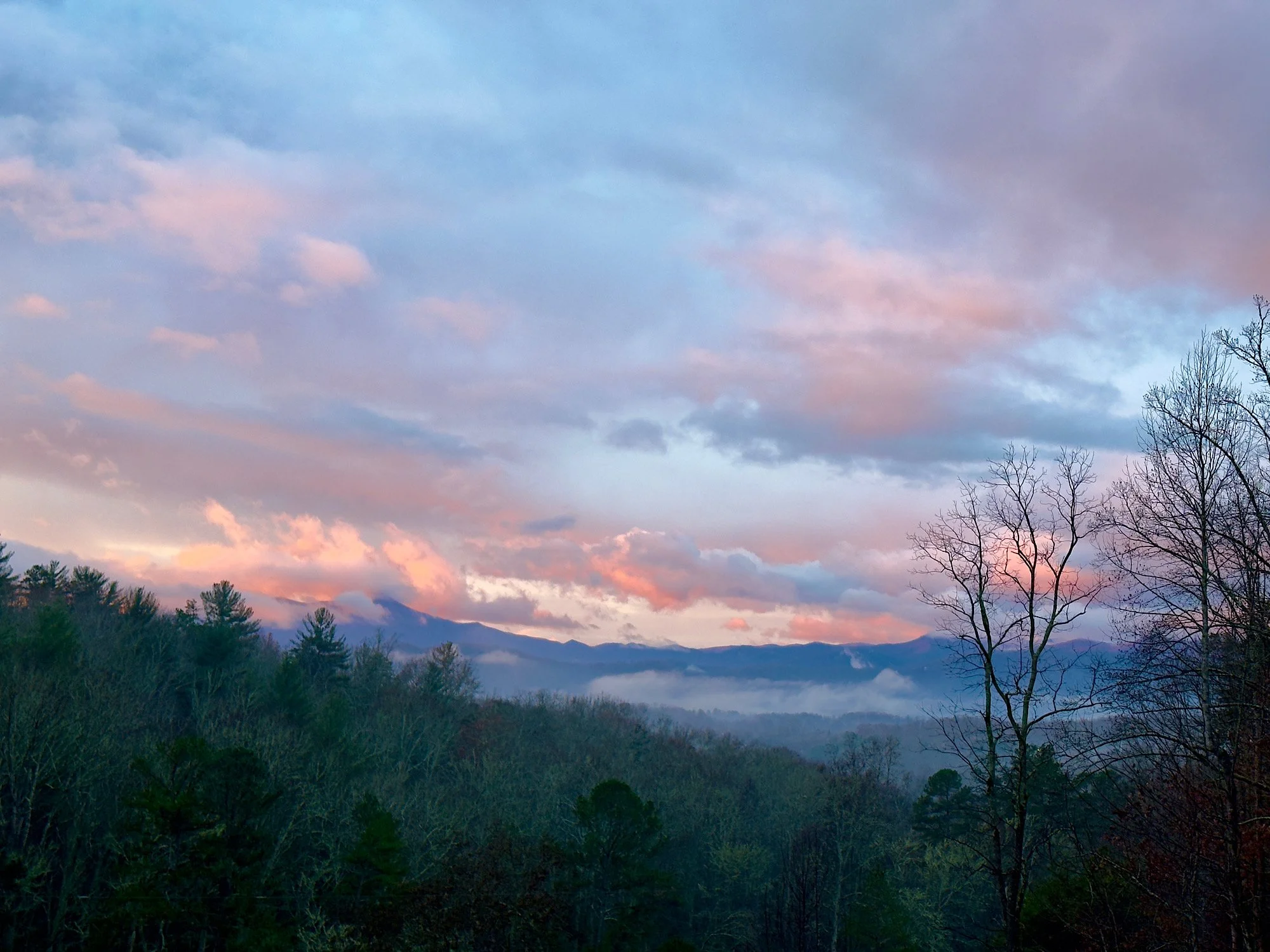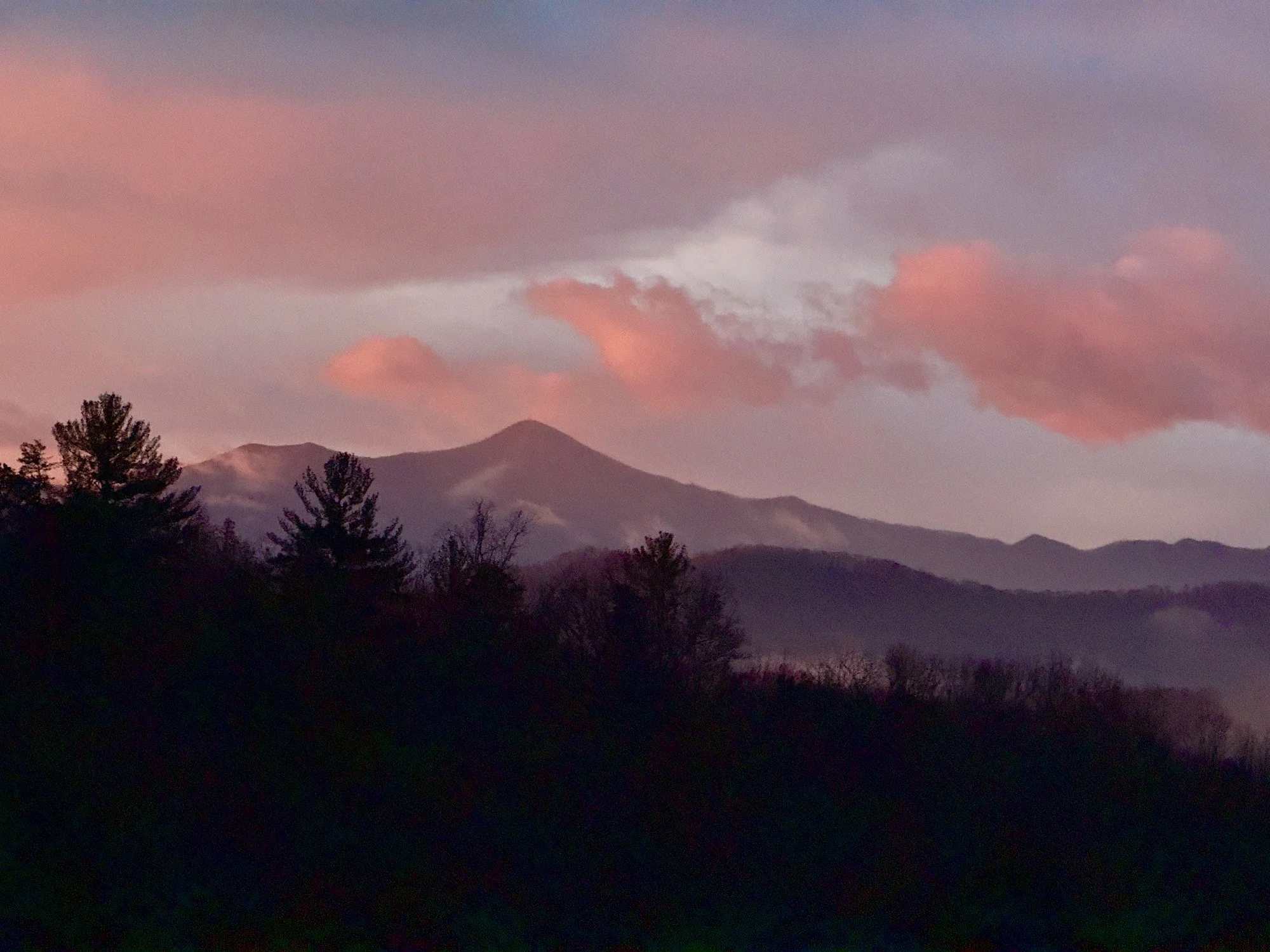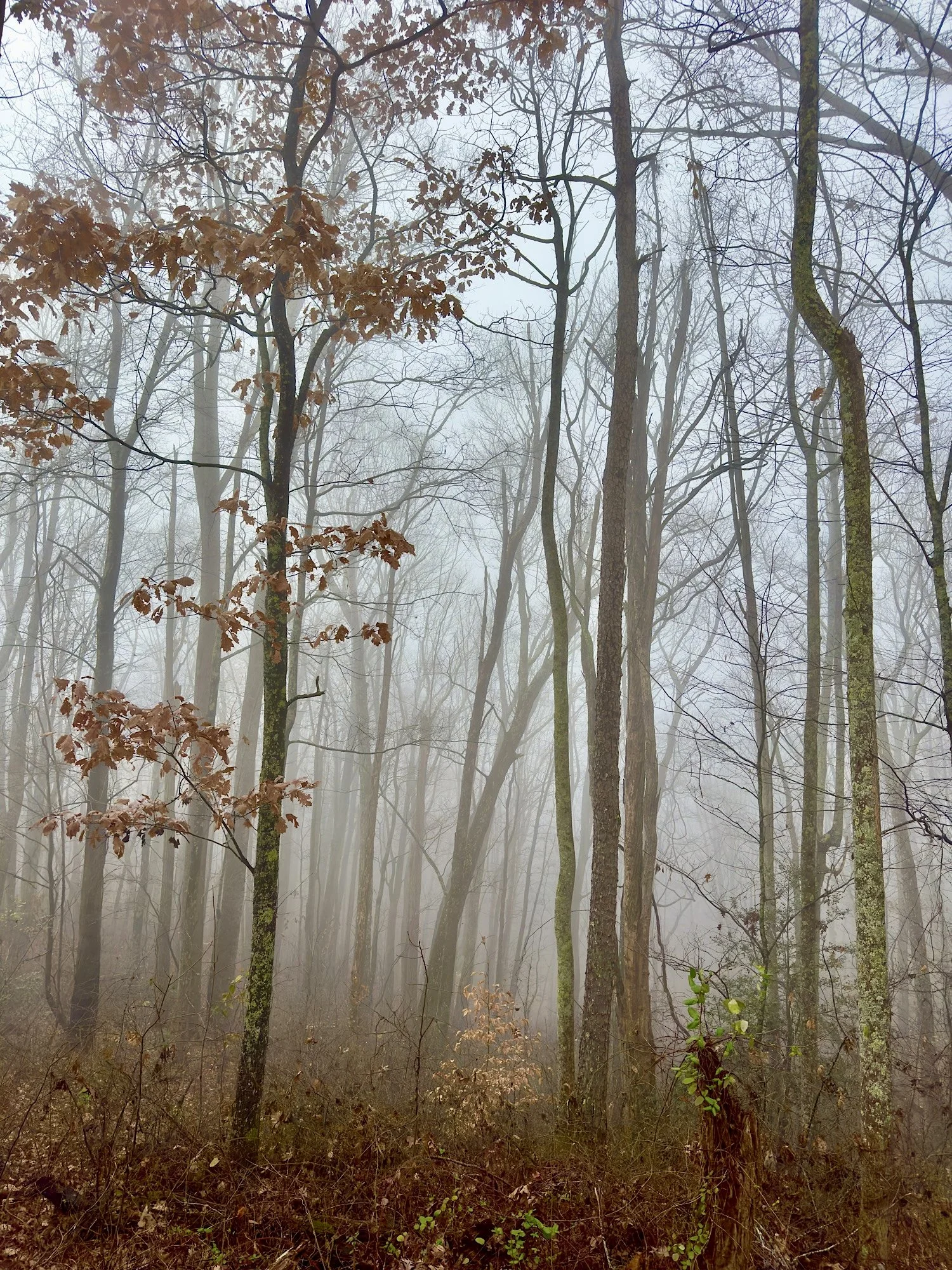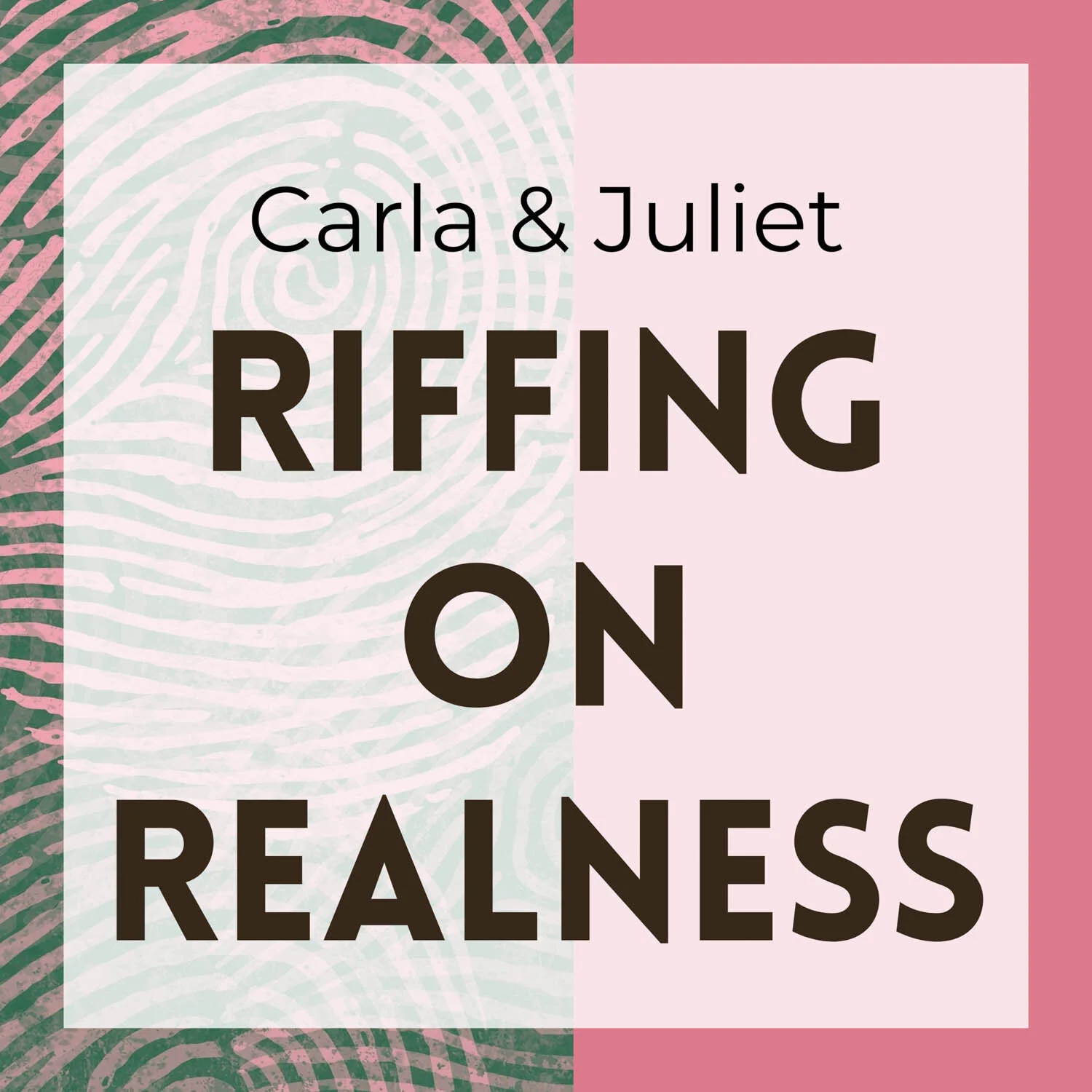A World In Upheaval
I read the news this morning and wept.
The struggle is real. I want to stay informed and bear witness—but the relentless firehose of information overwhelms me. I want to hide. I want to check out. But when I take just a peek, I tumble down the rabbit hole. Fear grips me. My breath shortens. It feels like things are unraveling. Power is shifting in ways that make my stomach clench. The air is thick with uncertainty. I can’t tell if we’re on the brink of collapse or transformation—probably both.
Tears come. I feel helpless. My mind catapults into the future, constructing worst-case scenarios.
Then I remember.
At this moment, I am okay.
I remind myself that others before us have lived through times like these—times of upheaval, collapse, and uncertainty—and many have risen, shining like beacons. I remind myself that the old world was never working for all of us. What we’re witnessing may not just be destruction but the painful cracking open that precedes something new. I remind myself that we are resilient, that we were built for this, and that I was born into this moment for a reason.
Still, I grieve. I fear. And I know I’m not alone.
So, what do we do? How do we move through this without collapsing into despair?
(Phinizy Swamp Nature Park, Augusta GA. 2010)
1. Honor Your Fear and Grief: They Hold Wisdom
These emotions are not signs of weakness. They are not distractions. They are intelligent.
Fear heightens our awareness, and grief reminds us of what we love. Research confirms that so-called negative emotions—fear, anger, and grief—are essential to human survival. They help us set boundaries, take action, and adapt. The key is to sit with them long enough to hear what they tell us but not so long that they consume us.
As Rumi wrote:
“Sit with your grief. Pour it tea. Listen to it. Honor it. Let it unravel its pain so you may release yours.”
And when teatime is over, take what you’ve learned and act.
2. Take Action: Transform Fear into Purpose
Despair calls for our attention. If we listen closely, it can reveal what we most long for. But staying in it too long can paralyze us. The way forward is action.
Decide how you want to show up in this moment. There is no one right way. But I don’t mean frenetic action. I mean intentional, meaningful action.
Some are called to protest, write, organize, build, meditate, or create sanctuaries of calm in the storm.
This moment has crystallized my purpose. I’ve spent my life walking into the dark places—my own and others'. My work is about transforming wounds into wisdom, fear into power, and pain into purpose. Now, I’m making it explicit: I want to help those ready to heal themselves and the world. I want to help people who aren’t just seeking success but who also want to make the world more just, whole, and humane.
As Lao Tzu said:
“If you want to awaken all of humanity, then awaken all of yourself. Truly, the greatest gift you have to give is that of your own self-transformation.”
3. Guard Your Energy: Protect Your Mind and Spirit
This is a marathon, not a sprint. If you burn out, you become another casualty of the system you want to change.
Be intentional. Limit your doomscrolling. Step away when needed. Be mindful of what you consume—not just food but media, conversations, and thoughts.
For me, survival means walking in the woods, meditating, writing, listening to music, and staying connected to those who ground me. It’s a balance between knowing and not knowing, between bearing witness and protecting my nervous system.
Get radically honest about what sustains you. And do more of that and less of what doesn’t serve you.
(Bard Owl outside my home in Vermont. 2009)
4. Root Yourself in Community: You Are Not Alone
Even if you tend toward solitude, like me, now is the time to name your people and bring them close.
Decades of research confirm what we already know deep in our bones: Humans are wired for connection. We survive because of each other. Friendship, community, and belonging aren’t luxuries; they’re lifelines.
Who are your people? Who sees you, gets you, and reminds you of what’s real? Reach out. Check in. Gather, even if it’s just over text. Build a web of support that holds you and that you hold in return.
We do not do this alone. We never have.
5. Seek Professional Support: You Don’t Have to Navigate This Alone
It’s okay not to know how to navigate this.
Therapists, coaches, and spiritual guides aren’t just for “fixing problems.” They are essential allies in times of transition. They help us regulate our nervous systems, reframe our fears, and find solid ground in unstable times.
I have my own guides. Without them, I’d be lost.
Who are yours?
6. Hold Space for What Wants to Emerge.
It is easy—natural—to imagine the worst. But fear is only half the story.
The other half is this:
We are standing at the edge of something unknown. And unknown does not automatically mean bad, even if it looks terrible.
History shows us that collapse is often the precursor to rebirth. In the ashes of the old, something new can rise—something more just, whole, and authentic. The systems we relied on were never built for all of us, and maybe they were never meant to last.
“When patterns are broken, new worlds emerge.” — Tuli Kupferberg
“Chaos is the raw material of creation. In times of order, transformation is resisted. But in chaos, it becomes inevitable.” — Unknown
“In the times of greatest chaos, transformation is not only possible—it is unavoidable.” — Unknown
(Dunedin FL, St. Joseph Sound. 2017)
7. Keep Going: Hope Beyond the Unknown
We must not lose hope. Not the flimsy kind of hope that clings to a particular outcome. But the deeper kind—the hope that trusts in something more significant than any single moment in history.
As Václav Havel wrote:
“Hope is not the conviction that something will turn out well, but the certainty that something makes sense, regardless of how it turns out.”
So we keep going.
Not because we know exactly how this will end but because who we become now matters.
Because there is work to do. Because there are fires to tend. Because something new is waiting to be born.
And we are here, now, for precisely this time.
Let’s Keep the Conversation Going
These are heavy times, and no one should navigate them alone. If this resonated with you, I’d love to hear your thoughts—how are you moving through uncertainty? Share in the comments, and pass this along to someone who needs it. If you want more reflections like this, consider subscribing. Let’s keep the conversation going. And a like always brings a little smile to me.

